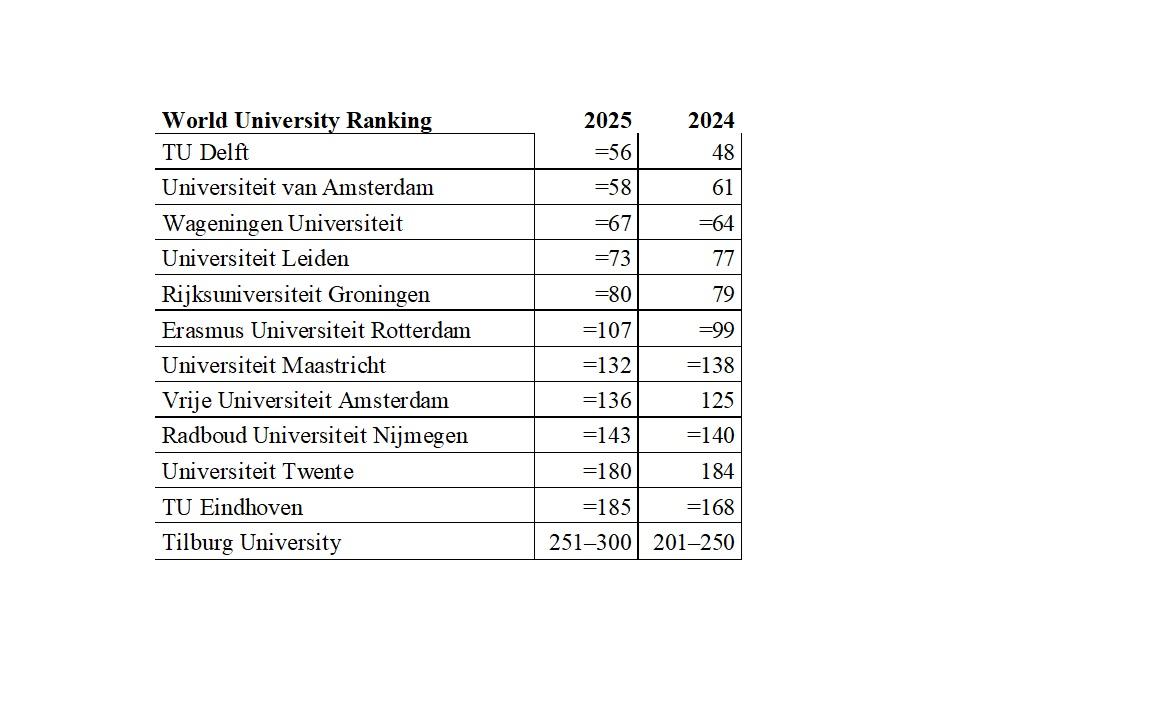A consequence of the announced cutbacks
Times Higher Education Ranking: the Netherlands sinks deeper

With major budget cuts on the horizon, Dutch universities are under severe pressure, predict the compilers of the British ranking. That is why Dutch universities are dropping this year. However, the Netherlands still has eleven universities in the top 200.
That would be twelve if Utrecht University had not decided to stop cooperating with such rankings last year. Many academics criticise such lists and UU decided to no longer provide data for them, saying that a university's performance cannot be reduced to a single number.
Giving up ground
Last year, seven of the twelve remaining Dutch universities had to give up ground. This year, it's eight. Although TU Delft made a big leap forward in 2023, it must now surrender its top 50 position. Only the universities of Amsterdam (UvA), Leiden, Maastricht and Twente ended up higher on the list this time.

© HOP. Source: Times Higher Education World University Rankings 2025.
= stands for shared position, green means an increase.
With eleven universities in the top 200, the Netherlands is still doing well. Only the United States (55), the United Kingdom (25), Germany (20) and mainland China (13) precede it.
British and American universities still dominate the highest positions in the ranking. The University of Oxford is number one for the ninth year in a row, this time followed by the American Massachusetts Institute of Technology (MIT) and Harvard at number three.
“Voluntary”
UU's absence raises the question of whether this top 200 provides an accurate picture. UU is included in the Shanghai Ranking, for which universities do not provide data.
It is good that universities participate voluntarily, responds Phil Baty, Chief Global Affairs Officer for THE. “We are the only voluntary ranking. We respect Utrecht University's decision, but we are open to dialogue. We would like to welcome the university back next year, of course, so that the Netherlands is more fairly represented in this important research project.”
Would Oxford also disappear from the ranking if it decided no longer to cooperate? Baty prefers not to speculate about that: "In the extremely rare cases that universities do not participate, we consider the situation on a case-by-case basis."
More participants than last year
However, the trend is actually going in the other direction, says Baty. The number of institutions participating in the ranking is increasing. This time there are almost 2,100 universities from 115 different countries, compared to 1,900 universities from 108 countries last year.
"The participants all see the great advantages to doing so," says Baty. After all, they become visible on the world stage and can compare themselves with other institutions. The ranking also provides them with insight into global developments and shows which young universities excel. According to him, the list also encourages international cooperation.